HNA's strategic plan for Africa's next city is fascinating
South Africa local time on May 26, South Africa's Comair Limited (Comair Limited) issued a shareholding change announcement, South African business aviation shareholders Thelo Aviation Consortium sold its entire shares, HNA Group's wholly owned subsidiary of the Netherlands purchased 6.2% of South African business aviation Shares.
Brief analysis of shareholding
The South African government has proposed the strategy of “BLACK ECONOMIC EMPOWERMENT (BEE)”. By increasing policy inclination, it encourages blacks to develop small and medium-sized enterprises, actively participates in the development of large national enterprises, and shares and participates in the black share of each enterprise. Management objectives and acceptance of skills training set hard targets in order to comprehensively improve the degree of integration of blacks into the economy. In 2006, as part of the BEE strategy, Thelo Aviation purchased a 16.1% stake in the South African Business Aviation Group for 137 million South African rand ($21 million), which is reported to have a profit of approximately 160 million South African rand ($13 million).
HNA Group's wholly-owned subsidiary in the Netherlands paid 160 million South African Rand ($13 million) to acquire a 6.2% stake in the South African Business Aviation Group. The author believes that the wholly-owned subsidiary of the Netherlands is TIP Trailer Services Group (TIP), a wholly-owned subsidiary of GE Capital, which was acquired by HNA Capital in 2013. Headquartered in Amsterdam, the Netherlands, TIP provides trailer leasing, chartering, maintenance and other value-added services to transport logistics customers in the European market.
Thelo Aviation's sale of the South African Business Aviation Group shares means that the South African Business Aviation Group no longer has a BEE strategic partner. The major shareholders of Thelo Aviation stated that this was a purely commercial decision. The South African Business Aviation Group CEO also said in an interview with the British "Sunday Times" that due to the uncertainty of South African government policy, the South African Business Aviation Group will no longer seek new partners in the BEE strategy. The South African Business Aviation Group will work with HNA to explore potential ways of cooperation.
The economic adviser to South African President Zuma also expressed support for the decision of the South African Business Aviation Group.
Analysis of South African Business Aviation Group
South African Business Airlines (Group) was founded on July 14, 1946, when it was called Commercial Air Services. Co-founded by AC Joubert, JMS Martin, L Zimmerman and JD Human of the Second World War South African Air Force. In 1948, the service from the Rand Airport to Durban in Johannesburg began to be used, using Cessna 195. In 1992, the Boeing 737-200 was used, and flights to southern Africa such as Harare and Gaborone were opened. In 1996, South African business airlines signed a franchise agreement with British Airways. In July 1998, it was listed on the Johannesburg Stock Exchange. In 2001, South African Business Airlines established a wholly-owned subsidiary, Low Cost Aviation Kulula.com. On September 6, 2007, South African Business Aviation continued to be a British Airways franchise company with a valid period of 11 years. According to the British Airways parent company IAG 2014 Annual Report, IAG currently holds 12.26% of the South African Business Aviation Group.
South African Business Aviation Group's South African Business Aviation, a company that uses the British Airways brand, currently has 17 aircraft, including five 737-300, 10 737-400 and two 737-800. The average fleet age is 23.7 years. The low-cost airline Kurula Airlines has one 737-400 and nine 737-800. According to its company annual report, the South African Business Aviation Group will receive four newly delivered 737-800s in FY2015. In addition, the eight 737-8 MAXs purchased by the South African Business Aviation Group from Boeing will be delivered between 2019 and 2021. The continued introduction of new aircraft and the elimination of old aircraft will ensure higher operational efficiency and lower fuel consumption for South African business aviation. The fuel consumption per 1,000 seats available in the annual report also reflects the constant renewal of the aircraft, resulting in lower fuel consumption for South African business aviation.
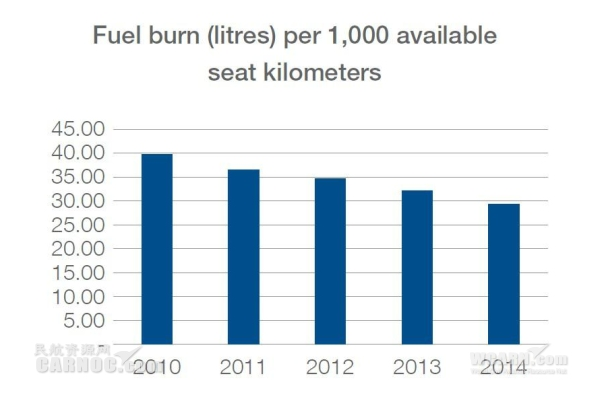
In terms of navigable cities, South African Business Aviation (British Airways) is also open to southern African countries except for South African domestic cities, including Victoria Falls Airport and Harare Airport in Zimbabwe, Livingstone in Zambia, Windhoek in Namibia, and Mauritius. Kurula Airlines focuses on South African domestic routes, including Johannesburg, Durban, Cape Town, Georgetown, Port Elizabeth, East London and other South African cities. The South African Business Aviation Group is also sharing code with Kenya Airways on Kenya Airways' Johannesburg-Nairobi route. South African Business Aviation is a one-of-a-kind alliance and a closely related British Airways service. South African Business Aviation provides international routes operated by its affiliates through a code-sharing program.


According to the annual report of the South African Business Aviation Group, 5.4 million passengers were transported in FY2014 and showed a trend of increasing year by year. Among them, South African business aviation transports 1.7 million passengers in China, and Kurula air transports 3.1 million passengers. South African business aviation transports 290,000 international passengers in southern Africa.
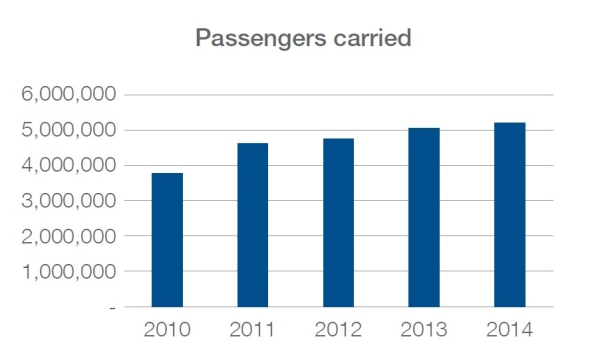
In addition to owning airlines, South African Business Aviation Group also has travel companies including Kourula Holidays and African Dream Holidays in the leisure and holiday sector; a lounge called SLOW, built at several airports in South Africa, is designed to help passengers Get out of the fast-paced life and relax; the food company; the flight simulator training company that provides training for pilots, flight attendants, and dispatchers. South African Business Aviation Group also participates in other travel and leisure companies, hotels and so on.
The financial performance of the diversified South African Business Aviation Group is shown in the chart below. The revenue and pre-tax profit of the South African Business Aviation Group in the 2010-2014 fiscal year was stable.
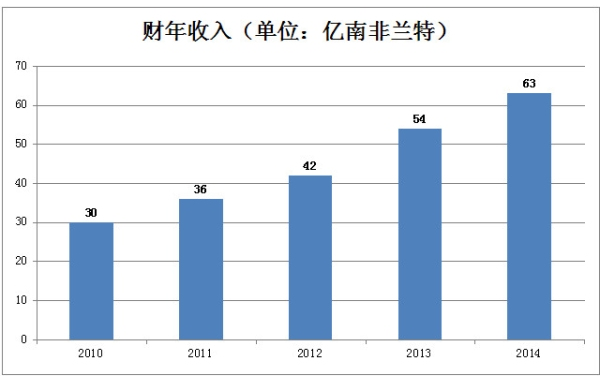
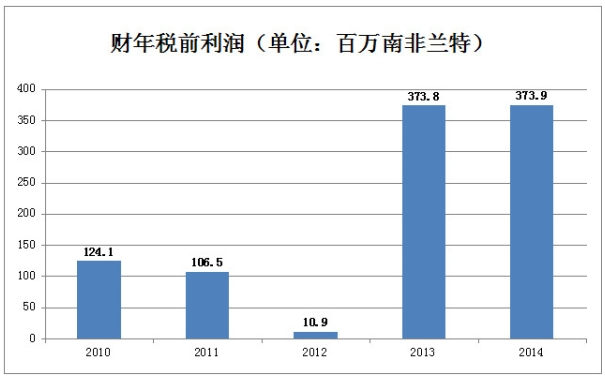
Hainan strategic big guess
In May 2014, Premier Li Keqiang advocated the implementation of the “China-Africa Regional Aviation Cooperation Plan” during his visit to the AU, and jointly developed the regional aviation industry with the African side. As of May 2015, China has officially signed intergovernmental air transport agreements with 17 African countries and drafted air transport agreements with six African countries, laying a legal foundation for the development of civil aviation relations between China and African countries. On May 15, 2015, China's civil aviation cooperation platform for non-cooperation was formally established, and the first meeting of the cooperation platform steering committee was held.
HNA’s attempts and efforts in China’s Unicom Africa route have never stopped. In 2010, Hainan Airlines opened the Beijing-Cairo route (14 flights in 2010) and stopped in 2011 (operating 25 round trips in 2011). From 2009 to 2011, the route from Beijing to Sudan Khartoum was opened (operating 95 flights in 2010). From 2007 to 2013, Beijing via Dubai (later Abu Dhabi) to Luanda route in Angola was opened. In 2010, HNA provided a total of 141 flights between China and Africa. After 2013, HNA has not flown through the African route. I believe that with the addition of more Boeing 787 in HNA, it will not be ruled out that it will open the China-Africa route again.
In terms of regional air operations, as early as 2012, HNA Group and the China-Africa Development Fund established a joint venture airline, Africa World Airlines (AWA), in Ghana. This is the first airline established by Chinese companies to invest in Africa, marking a breakthrough in China's regional aviation operations. At present, AWA Airlines consists of three ERJ-145 aircraft formerly belonging to Tianjin Airlines. The main business includes the domestic routes of Accra to Takoradi, Accra to Kumasi to Ghana and the regional route to Lagos, Nigeria. In the future, it plans to open traffic to Monrovia, the capital of Liberia, Freetown, the capital of Sierra Leone, Dakar, the capital of Senegal, and Abuja, the capital of Nigeria.
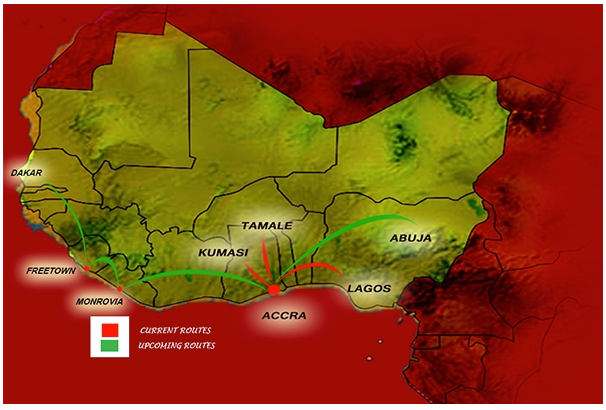
With the participation of HNA in the South African Business Aviation Group, HNA has not indicated its intention, but it is obviously an attempt by the Chinese government and the Civil Aviation Administration to promote the aviation enterprises to enter the African time and space. At present, South African Business Aviation and Ghana AWA do not effectively connect to the route network, but do not rule out the possibility of future connections.
In the past, China’s infrastructure investment in Africa was dominated by roads and railways. In recent years, airport construction projects have been gradually increased, including Nigeria, Congo, Togo, Kenya, Mali, Mozambique, Mauritius and other countries. It is not excluded that HNA will further invest in regional aviation in these countries, forming a quasi-alliance effect similar to that of Etihad Airways and its investment airlines. When HNA has more regional partners in Africa and its route network support, for HNA, the opening of the China-Africa route will be more successful.
South Africa's business aviation group's South African business aviation can basically be regarded as an extension of British Airways on the African continent. British Airways belongs to the Oneworld Alliance. The influence of HNA's shareholding in the South African Business Aviation Group on the relationship between HNA and British Airways, HNA and Oneworld is the future. The focus of observation. Will British Airways cooperate with HNA Group to increase its imagination through the various aviation companies of HNA Group in the air transportation market, especially the second-tier market.
As is known to all, the African continent has a beautiful scenery. In recent years, the number of outbound tourists in China has been growing at a high speed. South Africa Business Aviation Group and HNA Group have used their respective tourism sector advantages to provide better parade and leisure services for Chinese outbound tourists to Africa. Cooperation opportunities brought by secondary shares.
The expiration of the franchise rights of South African business aviation from British Airways in 2018 will be an opportunity for HNA to expand its equity or brand. It is also worth looking forward to. Considering the special historical relationship between South Africa and the United Kingdom, if you can embody more HNA elements in South African business airlines, it will help HNA brands to enter the Commonwealth countries and even enter the world.
During the summer and autumn season, the Civil Aviation Authority has approved seven African airlines in Egypt, Ethiopia, Algeria, Kenya, Madagascar, Angola and Mauritius to operate scheduled flights to Beijing, Shanghai and Guangzhou, with a total of 50 flights per week. In terms of China's aviation enterprises, China Southern Airlines has opened two flights a week to the Shenzhen-Mauritius Port Louis route. Air China and Egypt Airlines, Ethiopian Airlines, South African Airways, China Eastern Airlines and China Southern Airlines and Kenya Airways have carried out code sharing cooperation on several China-Africa trunk lines. According to the plan, Air China will open the Beijing-Johannesburg route and the Beijing-Addis Ababa route on August 30 and October 26, respectively. China Southern Airlines will open the Guangzhou-Kenya Nairobi route on August 5 this year.
It is believed that with the increasingly close exchanges between China and Africa, there will be more cooperation between China and Africa, and more cooperation methods. On the other hand, competition between airlines and enterprises will become more intense, and competition for route resources and partner resources will also be It will be more intense.


































